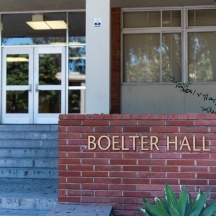
The Heller Report: AI Won’t Save You. But Your Data Might: West Monroe's Jeremy Bruck on Maximizing Your AI Investments
Jeremy Bruck, a partner at PE advisory firm West Monroe, sees organizations facing a paradox: AI “is somehow simultaneously ubiquitous and elusive,” says Bruck, who does not see technology readiness as the problem. “Organizations struggle to scale AI solutions because they fail to focus on the right opportunities, provide the right context engines to power AI solutions, and underappreciate the change management required for success.”
Learn Bruck’s advice for scaling AI in today’s lead item: Hint: “The winning strategy isn’t picking an AI vendor; it’s building an operating model that lets you pivot as the market evolves.”
Also in this edition: Stephanie Woerner, director of MIT’s Center for Information Research on what makes boards AI savvy; and we visit the “wayback machine” to recall the anniversary of the first message on the precursor to today’s internet.

Martha Heller
CEO
Heller
AI Won’t Save You. But Your Data Might: West Monroe's Jeremy Bruck on Maximizing Your AI Investments

Artificial intelligence “only creates value when it’s anchored in business outcomes and built on strong data foundations,” says Jeremy Bruck, a partner at private equity advisory firm West Monroe. In an interview with Martha Heller for CIO.com, Bruck urges leaders to focus on their data. “The smartest investments aren’t about specific tools, they are in data infrastructure and modular architectures that promote flexibility and data sovereignty,” he says.
The Secrets of AI Savvy Boards

MIT’s Center for Information Systems Research defines AI savvy boards as having members who understand the impact that emerging AI technologies will have on business in the coming decade. In this interview, Stephanie Woerner, the center’s director, explains why AI is an issue for all board members, and why she tells boards that now is the time to move beyond pilot projects to scale their AI capabilities.
From the Wayback Machine: First Message Sent on the Internet’s Precursor

The first message sent over the internet’s precursor wasn’t even a word. It was “lo,” the first letters of “login.” And no one on Professor Leonard Kleinrock's 40-person research team at UCLA’s Boelter Hall knew that they were launching a new era of computer networking when, on October 29, 1969, Charley Kline typed those two letters in an attempt to log on to the Advanced Research Projects Agency Network, as a UCLA website recounts. Known as ARPANET, the first wide-area computer network with distributed control set up by the U.S. Department of Defense, connected the network node at UCLA to the network host system at Stanford Research Institute. The good news: while sending “lo” crashed the system, the second attempt to type “log in” worked.
Featured Executive Placement: MSPCA-Angell

Heller was recently retained to recruit a Chief Information Officer for The Massachusetts Society for the Prevention of Cruelty to Animals – Angell Animal Medical Center (MSPCA-Angell). Since 1868, the MSPCA-Angell has been at the forefront of animal protection and veterinary care, providing hands-on care for thousands of animals each year. Today, the MSPCA-Angell is a world leader in animal welfare; healing, rescuing, sheltering, protecting, and advocating. For this role, we placed Anthony Spangenberg, who most recently served as Vice President of Information Technology for Houghton Mifflin Harcourt. Spangenberg holds a B.A. from Westfield State University and an MBA from the Isenberg School of Management, UMass Amherst. Congratulations, Tony!
-
AI-powered Transformation at ConocoPhillips is Fueling the Future
-
CSO hiring on the rise: How to land a top security exec role
-
Leading Change: How to Handle Three Reactions
-
In Japan, the Stratosphere Is Telecom’s Next Frontier




